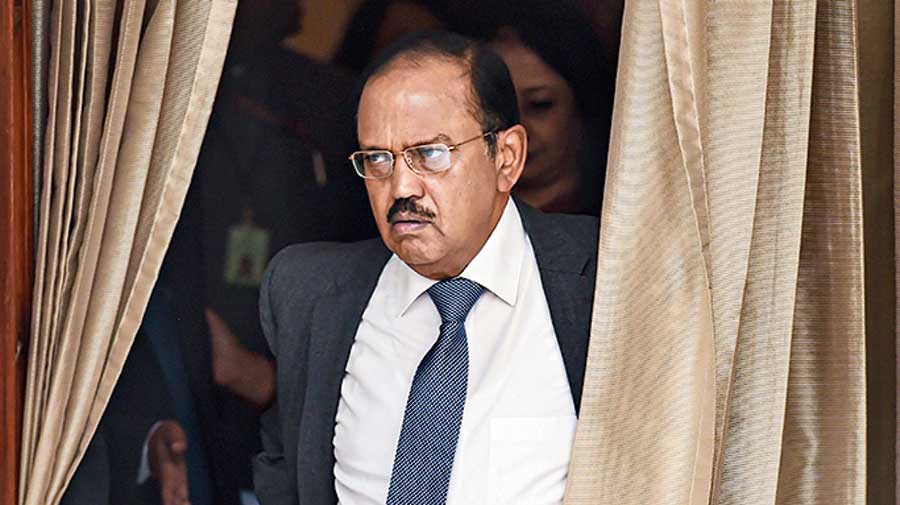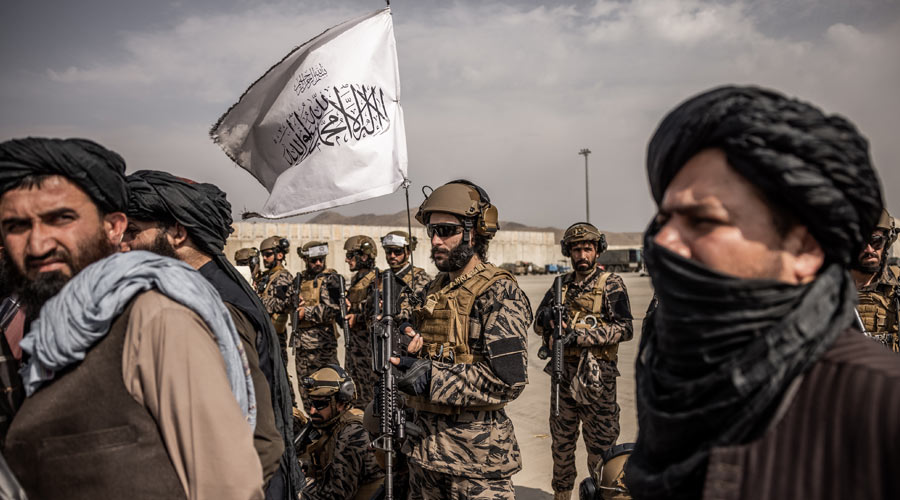National security adviser Ajit Doval is reported to have held unacknowledged talks with the CIA chief and followed it up with an announced meeting with the intelligence head of Russia.
Much of the back-to-back deliberations in New Delhi apparently revolved around Afghanistan where a Pakistan-midwifed interim government has been set up with a number of UN-blacklisted terrorists, including Prime Minister Mullah Muhammad Hassan Akhund.
The purported visit by CIA chief William Burns, who was en route to Pakistan, was kept hush-hush by both India and the US. But the meeting with the secretary of the Security Council of the Russian Federation, Gen. Nikolay Patrushev, was announced in advance by the Indian external affairs ministry.
Burns is reported to have met Doval on Tuesday. Neither country confirmed the visit but news reports on the visit were not denied either.
The visit comes close on the heels of Pakistan spy chief Lt Gen. Faiz Hameed’s very public visit to Kabul over the weekend, after which there was a full-scale assault on the Panjshir resistance groups whose representatives alleged that Pakistani aircraft were used against them.
Within a day of the Taliban claiming control over Panjshir — a claim contested by the National Resistance Front (NRF) of Afghanistan -— the insurgents announced their caretaker government, in which most senior positions have gone to the old guard.
The new ruling arrangement has four members from the Haqqani network, which has close ties with the Pakistani deep state and has targeted both the US and India in the past. Acting Prime Minister Hassan Akhund is a UN-blacklisted terrorist, as are several other government seniors.
During the Doval-Patrushev meeting, the two sides discussed the prospects of a Russian-Indian joint effort at creating conditions for the launch of a peaceful settlement process on the basis of an intra-Afghan dialogue.
According to a statement from the Russian embassy, the two delegations agreed to coordinate the approaches of Russia and India in multilateral formats on an Afghan settlement.
“The importance of defining parameters of the future state structure of Afghanistan by the Afghans themselves, as well as the need to prevent the escalation of violence, social, ethnic and confessional contradictions in the country, were emphasised,” the statement said.
From the Indian side, representatives of the external affairs ministry, the defence ministry and security agencies participated in the meeting.
Later, Patrushev — who has been secretary of the Security Council since 2008 — met Prime Minister Narendra Modi and external affairs minister S. Jaishankar. In a tweet, Jaishankar said he held “very useful discussions on Afghanistan” with Patrushev.
Addressing a conference on Afghanistan jointly convened by the foreign ministers of the US and Germany, Jaishankar said: “Resumption of travel out of Kabul is a priority. Use of Afghan soil to promote terrorism in any manner by any country is unacceptable. The Taliban must live up to its declarations to that effect.
“The world should not countenance interference by external players, especially those intensifying violence at this difficult time. Our collective approach should be guided by UNSC resolution 2593.”
Resolution 2593 -- adopted by the UNSC late last month under India’s rotating presidency – calls for ensuring that the territory of Afghanistan is not used for terrorism against any country, enhancing efforts to provide humanitarian assistance to Afghanistan, and upholding human rights. Russia and China had abstained as their concerns, especially about terrorist groups directed against them, were not taken on board.











